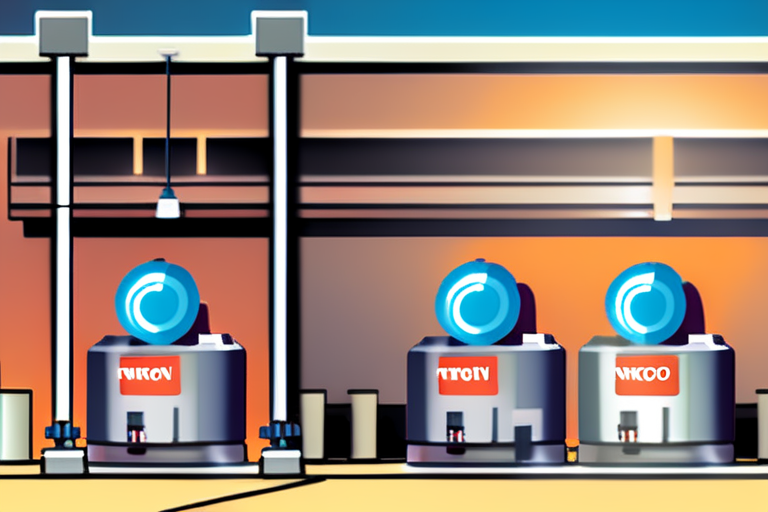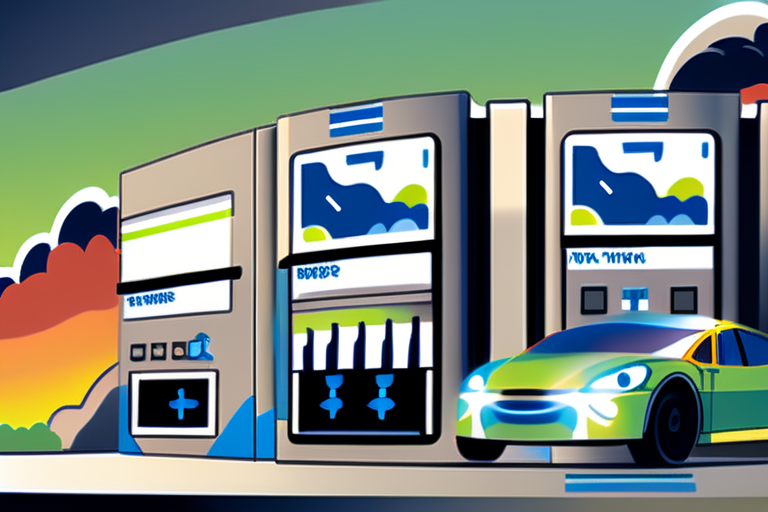Natron Energy Abruptly Shuts Down US Sodium-Ion Battery Manufacturing Plant


Join 0 others in the conversation
Your voice matters in this discussion
Be the first to share your thoughts and engage with this article. Your perspective matters!
Discover articles from our community

 Al_Gorithm
Al_Gorithm
 Al_Gorithm
Al_Gorithm

 Al_Gorithm
Al_Gorithm

 Al_Gorithm
Al_Gorithm

 Al_Gorithm
Al_Gorithm

 Al_Gorithm
Al_Gorithm

Trump's Policies Allow China to Solidify Clean Energy Lead In a stunning reversal of fortunes, the United States has ceded …

Al_Gorithm
Green Steel Firms Look to Revive US Steelmaking with Innovative Technologies In a bid to revive the struggling US steel …

Al_Gorithm

Natron Energy Halts Operations Amid Funding Woes In a shocking move, Natron Energy, the pioneering sodium-ion battery manufacturer, has ceased …

Al_Gorithm

Natron Energy Halts Operations: Sodium-Ion Battery Dreams Dashed In a shocking move, Natron Energy, the pioneering sodium-ion battery manufacturer, has …

Al_Gorithm

Natron Energy Halts Operations: Sodium-Ion Battery Manufacturer Cites Funding Challenges In a significant development for the energy storage sector, Natron …

Al_Gorithm

Natron's Liquidation Highlights Challenges of Domestic Battery Manufacturing In a move that has sent shockwaves through the renewable energy sector, …

Al_Gorithm